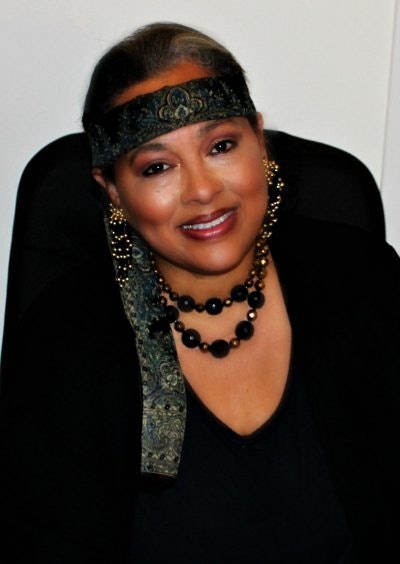Along with its persisting global presence and its surging number of victims, COVID-19 has conjured numerous challenges due to its unprecedented nature. Whether we see the vast changes around us as positive or not, we need to adapt to stay in the performance race. Higher education is facing some critical demands, and it might be useful to summarize some gripping ones, along with the ways we’re collectively addressing them.
Enrollment
History has taught us that people return to college when employment challenges and economic uncertainty rise, but COVID-19 has busted this trend. Four-year institutions and community colleges are experiencing a sharp decline in enrollment. While graduate student enrollment yielded a small increase, first year undergraduate populations declined by about 16% at community colleges and 14% at four-year institutions. The reasons for this trend vary from strained finances and travel concerns to aversion about online education.
Learning Formats
 Dr. Joan Marques
Dr. Joan MarquesWhile part of the reasons for the current enrollment decline is ascribed to the pandemic-triggered online format, we should expect that a hybrid education format will become the new normal, even at the most conventional institutions. Both students and faculty, who have initially been grappling with the change, have become accustomed to the convenience of teaching and learning from home. The realization that it’s inspiring to be on campus and have spontaneous interactions with faculty and peers is countered by the cost and time efficiency of acquiring education from the comfort of one’s office or home without the stress of commuting or the expense of on-campus dormitories. The writing has been on the wall for quite some time: Online education has been one of the fastest growing trends in recent years, with blended instruction labeled as more effective than strictly face-to-face or online by the US Department of Education, especially for postsecondary students. COVID-19 has converted a learning mode that was previously perceived as substandard into a legitimate, constructive, and most likely lasting format toward acquiring higher education.
Interdisciplinarity
The call for more interdisciplinary approaches has increased in past years, but the reality of silos, fundamentally created to establish departmental and programmatic focus in academia, has kept interfering with the desires for a broader learning span amongst students in higher education. While it is generally understood that the accelerating shifts between jobs and careers warrant greater flexibility within today’s professionals, universities continue to struggle with this contemporary need. One of the biggest impediments lies in the fact that busting silos requires eradication of egos, which is highly counterintuitive to academia. As long as individual departments prioritize and get praised for their singular progress, the general population, most prominently the students, will suffer. COVID-19 is forcing institutions of higher education to implement collaboration where there used to be impenetrable silos. After all, identifying common goals that demand collectively working toward their realization, is the most effective and rewarding way to institutional survival and student satisfaction.
Within the trend of dismissing barriers, earnest consideration should also be given to non-degree alternatives (certificate programs) and the opportunity to acquire multiple concentrations, preferably through different teaching units within institutions. Developments such as Google’s career certificate programs should be a serious wake-up call to consider this road.
Diversity, Equity and Inclusion
Fueled by the recent social unrest, a renewed passion has emerged to permanently end inequity and limited social mobility for some groups in society. This movement reinvigorated efforts in the academic environment to take a hard look at faculty and staff teams, as well as student populations, and increase efforts toward amplified racial and social justice. Higher education educators carry a major responsibility in correcting the systemic marginalization of Black, Indigenous and other people of color. This responsibility will require dismantling and rebuilding of policies and procedures, and some conscious steps toward assisting those that have largely remained absent in higher education so far.
Curricular adjustments aimed at promoting social justice and reducing implicit biases are an intrinsic part of the need for change, but aside from being time- and cost consuming, they bring their own set of challenges as well. The academic mills run meticulously slow and hierarchical, and any change easily takes up to two or three years before becoming factual.
Revisiting the Cost of Higher Education
Not insignificant in the whole of today’s challenges is the price tag of higher education, which is becoming increasingly unattractive to education seekers in today’s ambiguous world. The COVID-19 wake-up call may very well impose a turn onto a new economic-operational path that will balance out tuition with increased levels of government and private philanthropic funding. Unfortunately, the pandemic has caused a 10-30% decline in fundraising revenue for universities, because donors are waiting out a potential economic downturn. Approaching new donors has currently become near-utopian, and many large philanthropists are limiting their access for funding inquiries. Hopefully the steep funding declines of today will be succeeded by equally steep recoveries.
Higher education institutions that manage to successfully overcome these challenges and weather this unprecedented pandemic, may be able to grant future generations the gift of a formal degree, and all the immeasurable advantages it brings, such as acquiring critical and creative thinking skills, understanding and confronting biases, establishing life-long relationships and useful networks, and paying forward the advantages received throughout this unforgettable journey.
Dr. Joan Marques is the dean of Woodbury University’s School of Business.





















